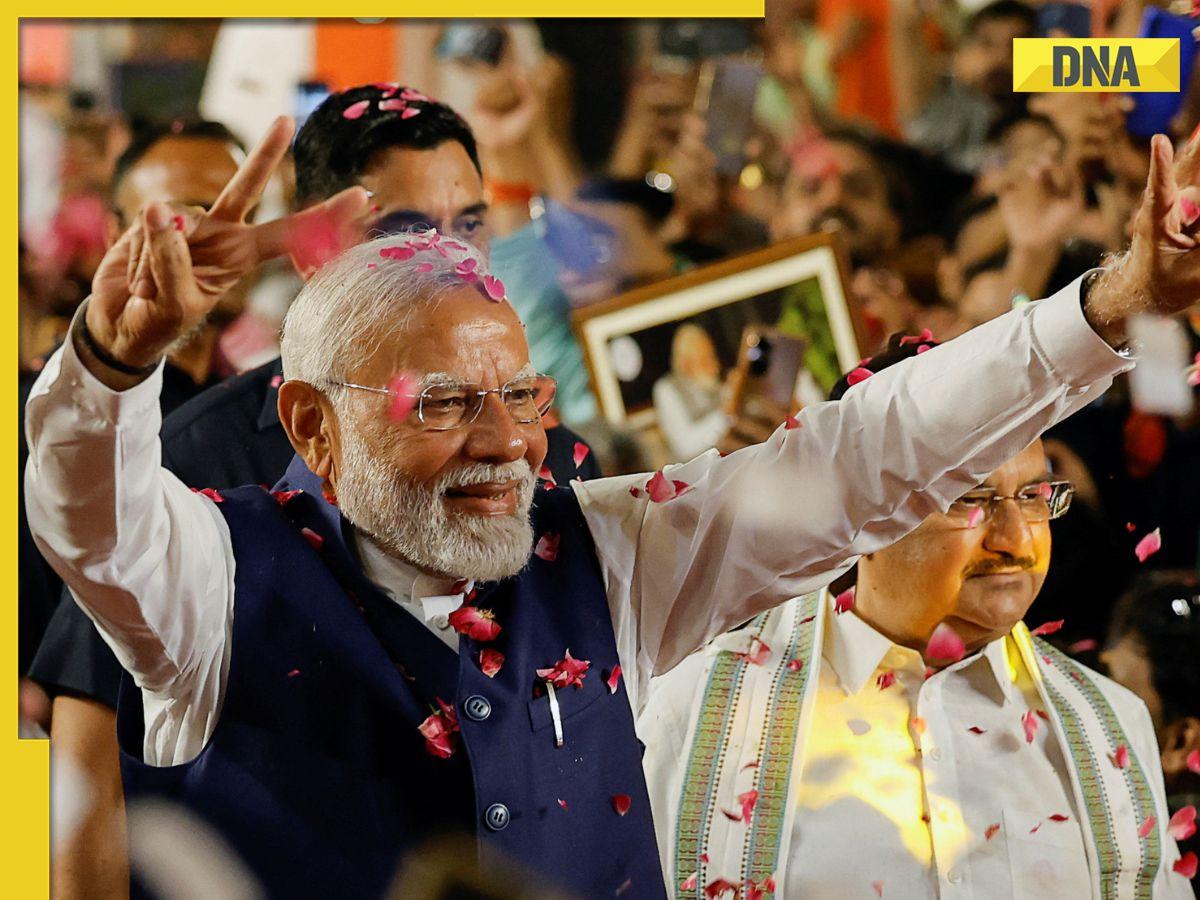
Prime Minister Narendra Modi made history on Sunday as he officially accepted the mantle of leadership for a third consecutive term. This significant milestone marks him as the first non-Congress leader and only the second after Jawaharlal Nehru to achieve such a remarkable feat. Few foresaw this outcome for a Bharatiya Janata Party (BJP) leader until he dramatically reshaped the landscape of Indian politics in 2014.
Modi’s third term, which appeared all but certain, was not accompanied by the overwhelming mandate his party had anticipated. The Congress and its allies, united under the INDIA bloc, mounted an unexpectedly vigorous campaign, delivering surprises in traditional BJP strongholds such as Uttar Pradesh and Rajasthan.
Nevertheless, Modi’s towering political presence remains undeniable. The BJP’s tally of 240 seats, while its third-best performance, is being framed as a disappointment by the party’s ardent supporters. Conversely, the Congress, despite securing just 99 seats — its third worst performance — is interpreting its results as a moral victory.
Despite the setbacks, the BJP-led National Democratic Alliance (NDA) secured 293 seats, a triumph Modi has touted as the most significant success for any pre-poll alliance without a single party majority.
At 73, Modi continues to be the axis around which Indian politics will revolve in the forthcoming years. However, he now faces the intricate dynamics of coalition politics more acutely, a first since his ascension as Gujarat Chief Minister in 2001.
From his early days, leading the BJP to victory in the 2002 Gujarat assembly elections following the Godhra train burning incident, Modi has demonstrated an unparalleled ability to reshape political substance and sentiment. Despite critics writing him off politically, he transformed into a winning formula of Hindutva and development, proving resilient and adaptable across multiple electoral battles.
His leadership resulted in successive victories: in Gujarat (2002, 2007, and 2012) and at the national level (2014 and 2019). However, this third term sees the BJP without an outright majority, placing Modi in uncharted political waters.
.
Modi now contends with the strongest opposition of his tenure. Critics are questioning his capacity to control the national political agenda, especially as the opposition has managed to dent the BJP’s dominance in several states. Notably, in Uttar Pradesh, the SP-Congress alliance managed to prevail over the BJP-led coalition.
Despite these political hurdles, Modi has remained a picture of steely resolve, reflecting on the election results without conceding to the opposition’s unexpected gains.
BJP leaders underscore Modi’s broad appeal and enduring popularity, highlighted by the party’s impressive performance in Odisha, where it nearly achieved a clean sweep in the Lok Sabha polls and won a majority in the state assembly for the first time. Additionally, the party doubled its number of MPs in Telangana and won seats in Kerala for the first time.
As Modi embarks on his third term, supported by trusted veterans and seasoned political allies, the BJP is optimistic. Modi is expected to extend the party’s influence both horizontally and vertically through innovative government policies and fresh political strategies, with his core principles of Hindutva, development, and welfarism remaining central.
Yet, Modi’s mettle will soon be tested again as the BJP prepares for imminent assembly elections in Haryana and Maharashtra. Both states previously witnessed setbacks for the party, and the upcoming contests will be crucial for maintaining the BJP’s momentum.
In an ever-evolving political climate, Modi’s ability to navigate coalition complexities and opposition pressures will shape the trajectory of his third term. His leadership remains pivotal, not only for his party but for the nation’s direction in the coming years. As he takes guard once more, the political landscape of India holds its breath, watching closely to see how Modi and his administration will navigate the challenges ahead. The narrative of Indian politics continues to be intricately linked with Modi’s journey, as he strives to defy his detractors and solidify his legacy.












